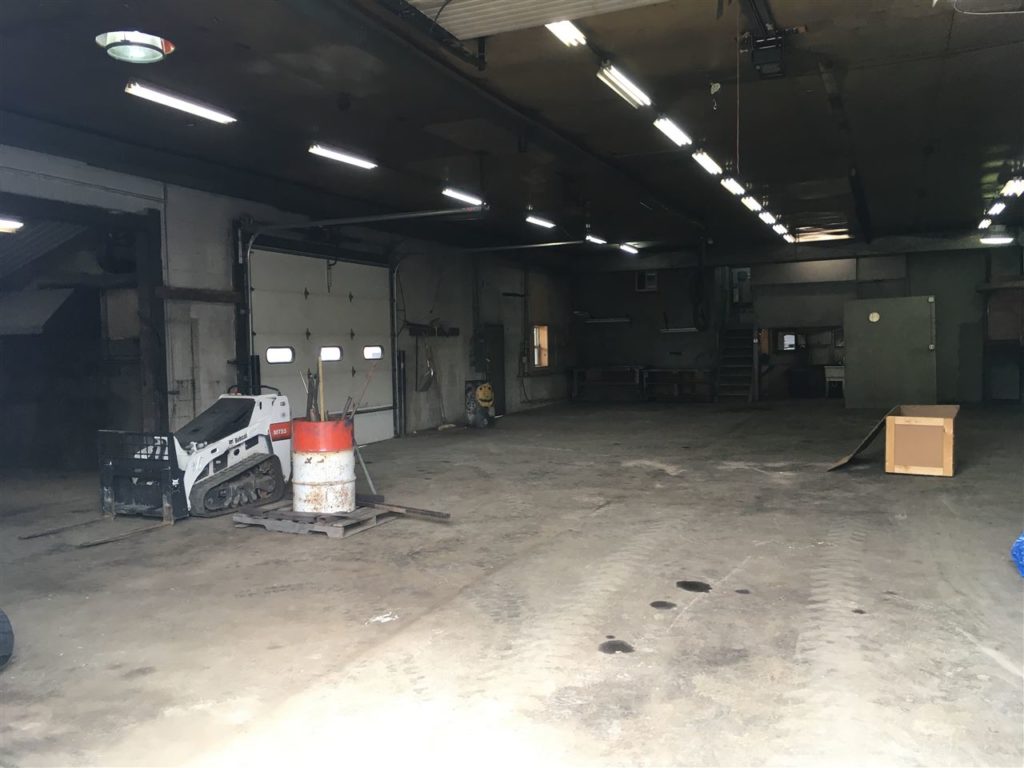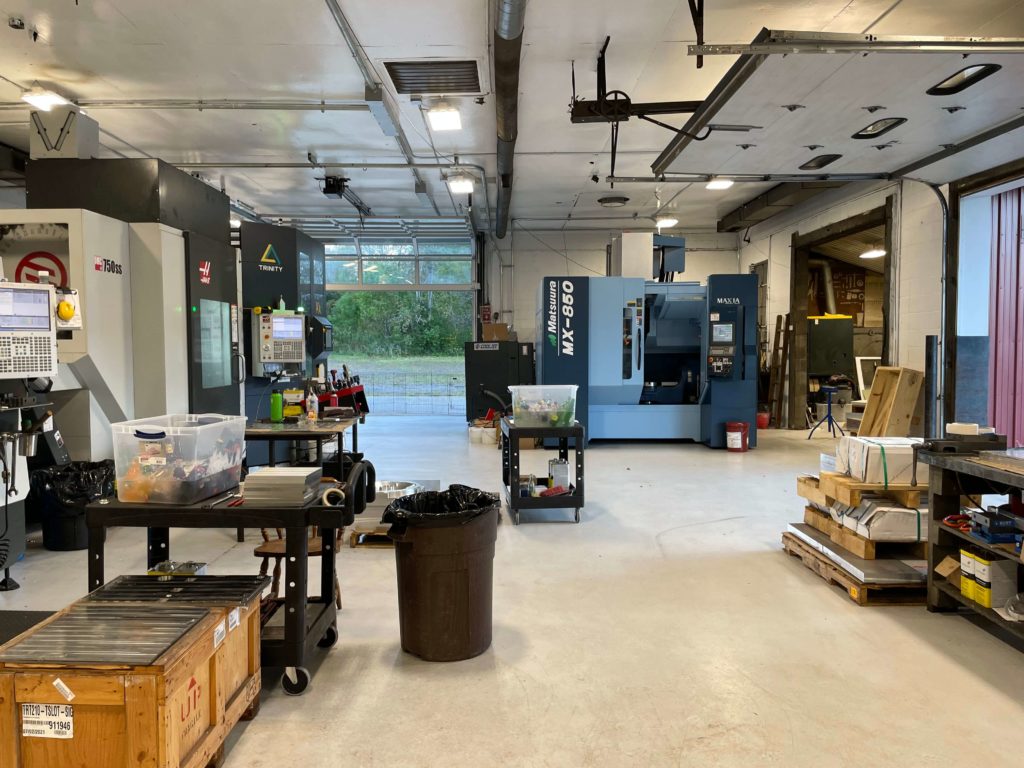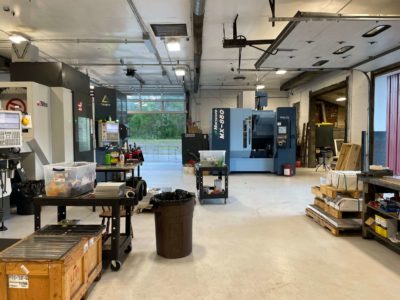Overcoming Common Objections to Manufacturing Careers
Hello, reader—Brian Kippen here, owner and founder of KAD. Last month I introduced our new series, The Future of Manufacturing, wherein I’ll share the problems we face in the manufacturing industry and what solutions KAD is testing. I hope this will be a collaborative process, and I would love to hear your thoughts on these topics. Drop me a line so we can connect and work to reinvigorate the manufacturing industry together.
One of the biggest challenges the manufacturing industry faces today is the lack of skilled workers.
By some estimates, our industry could see upwards of 2 million jobs unfilled in the United States in 2030. While we could blame the pandemic for this issue, the fact is that we saw a reduction in the workforce years before any government-imposed lockdowns occurred.
I don’t pretend to have all the solutions to the current labor shortage—we’re experiencing its impact, too! Still, sharing what we’re doing to attract more workers to our two precision machine shop locations is one small step toward overcoming this challenge.
Reframing the Worker Shortage as an Attraction Problem
I see the worker shortage mainly as an attraction problem. Manufacturing leaders simply aren’t attracting enough people to our industry.
The general public doesn’t know what modern manufacturing jobs are like, what it means to be a machinist, and just how advanced precision machine shop floors have become.
If we can address these objections and provide compelling cases for pursuing careers in manufacturing, I believe we’ll start to see more people apply to our open roles.
3 Objections to Manufacturing Careers—and How to Overcome Them
Let’s look at the three most common objections to manufacturing careers and how we can challenge them with evidence and action.
Objection #1: “I don’t know what a career in manufacturing is.”
When I was in my early twenties, I didn’t know I could become a machinist, let alone the founder and CEO of a bi-coastal precision machining company. I was expected to attend a 4-year university and get a “good job” afterward. That plan didn’t work for me. A family friend introduced me to manufacturing, and I’m genuinely grateful.
Up-and-coming generations of workers face the same initial obstacle that I did. College degrees are still touted as the superlative life path after high school. Unless they know someone in the industry, most high schoolers aren’t even thinking about manufacturing careers.
Solution: We must get out there, be part of the conversation, and make manufacturing jobs more mainstream.
We need better buzzwords and better representation among the general public. If the media doesn’t pick up our stories, let’s bring them to our local, county, and state institutions and connect directly with the kids who need to hear them.
We must get in front of today’s youths and use more exciting and accurate language to convey what we do.
We should be hosting shop open house events to show off our machining equipment and talk about automation, robotics, and artificial intelligence. We should be speaking at high schools about alternative career paths that can be as rewarding as entering a corporate setting—if not more.
Whenever the opportunity arises, I speak at high schools, and we host a two-hour open house at KAD every quarter. While those efforts take time, they are incredibly worthwhile.
Objection #2: “Manufacturing is dirty, dark, and dangerous.”
If you’ve been around the industry for a while, you know manufacturing jobs have a reputation for being dirty, dark, and dangerous (the infamous “3 Ds”).
Decades ago, before advancements in technology like automation and robots, the industry was different, and some jobs fit that description. Today, we can change that perception, shop by shop.


Solution: Maintain a clean and bright shop that you’re proud to show off.
It might sound overly simplistic, but you can create a new perception of manufacturing jobs by ensuring your shop is light, bright, clean, and safe. You’re more likely to attract people to your shop if the facility itself is appealing. And people will feel comfortable working in the shop if they’re confident that it’s safe.
So, clean up your space, apply a fresh coat of paint on the walls, and install better lighting. (Good lighting alone will make shops look and feel better while also improving safety.) You might hesitate to spend money on these enhancements, but attracting the right people is an excellent return on your investment.
Keep in mind that not everything has to be shiny and new to be appealing. Older equipment is a reality for many shop owners, but we don’t have to let the machines appear neglected and outdated. Give your equipment a good cleaning, and update it when you need to.
Objection #3: “Manufacturing careers can’t compete with other industries.”
There’s stiff competition for employees right now across all industries.
It’s not only hard to stand out among the many precision machine shops with job openings but also challenging to compete with other industries, especially those with flexible work hours and remote opportunities.
Solution: Get creative and think comprehensively about compensation and benefits.
A few decades ago, a steady paycheck was enough to entice a worker to stay with you for the long run. But today’s generations think about work differently. Money is only one factor candidates consider when weighing job options; they’re also looking for work-life balance and a sense of purpose.
If you can’t pay skilled workers top-tier salaries, that’s okay! Instead of worrying about what you can’t provide, focus on what you can bring to the table:
- Can you offer a growth-focused culture?
- Does your shop have cutting-edge equipment?
- Do your teams tackle the more complex and exciting projects in the industry?
- Are flexible work schedules a possibility?
Reports indicate that 98% of US manufacturing work is completed by small manufacturers (i.e., shops with fewer than 100 employees). If you’re trying to attract a worker away from a big company, let them know that your size makes you agile and that you get to take on interesting projects because you’re not buried under the bureaucracy that comes with large corporations.
We can take action to promote career pathways within the manufacturing industry, but we have to get started now—and let other shops know what’s working for us so they can follow suit. Together, we can change the perception of precision machining jobs to attract and retain skilled workers.
Do you have other ideas about overcoming the skilled worker shortage? Get in touch! I’d love to hear from you.



